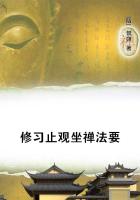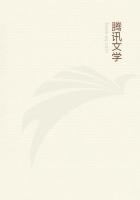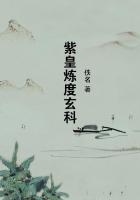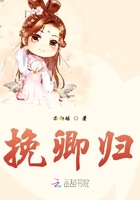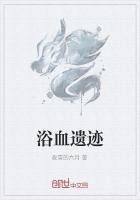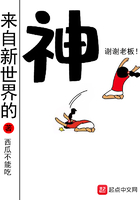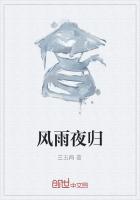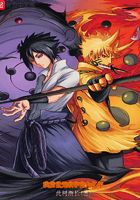"Yes, my brother," he answered, "because you believe my religion to be idolatry, and do not understand that the Sun to me is the symbol and garment of God, and that when we of the Inca blood, or those of us who have the inner knowledge, talk of him as our Father, we mean that we are the children of God, though the common people are taught otherwise. For the rest, this lady took her vows of her own free will and of her secret reasons I know nothing, any more than I know why she offered herself in marriage to Urco before she found you upon the island. For you I grieve, and for her also; yet I would have you remember that, as your own priests teach, in every life that is not brutal there must be loss, sorrow, and sacrifice, since by these steps only man can climb towards the things of the spirit. Pluck then such flowers as you will from the garden that Fate gives you, but leave this one white bloom alone."
In such words as these he preached at me, till at length I could bear no more, and said roughly:
"To me it is a very evil thing, O Inca, to separate those who love each other, and one that cannot be pleasing to Heaven. Therefore, great as you are, and friend of mine as you are, I tell you to your face that if I can take the lady Quilla out of that golden grave of hers I shall do so."
"I know it, my brother," he answered, "and therefore, were I as some Incas have been, I should cause this holy Spouse to travel more quickly to the skies than Nature will take her. But this I will not do because I know also that Destiny is above all things and that which Destiny decrees will happen unhelped by man. Still I tell you that I will thwart you if I can and that should you succeed in your ends, I will kill you if I can and the lady also, because you have committed sacrilege. Yes, although I love you better than any other man, I will kill you. And if King Huaracha should be able to snatch her away by force I will make war on him until either I and my people or he and his people are destroyed. And now let us talk no more of this matter, but rather of our plans against Urco, since in these at least, where no woman is concerned, I know that you will be faithful to me and I sorely need your help."
So with a heavy heart I went back to the camp of Huaracha and told him Kari's words. He was very wroth when he heard them, since his gods were different to those of the Incas and he thought nothing of the holiness of the Virgins of the Sun, and once again talked of renewing the war. Still it came to nothing for sundry reasons of which the greatest was that his sickness increased on him as the days went by.
Also I told him that much as I desired Quilla, I could not fight upon his side since I was sworn to aid Kari against Urco and my word might not be broken. Moreover, the Yuncas who had been our allies, wearying of their long absence from home and satisfied with the gentle forgiveness and the redress of their grievances which the new Inca had promised them, were gone, having departed on their long march to the coast, while many of the Chancas themselves were slipping back to their own country. Therefore Huaracha's hour had passed by.
So at length we agreed that it would be foolish to attack Cuzco in order to try to rescue Quilla, since even if Huaracha won in face of a desperate defence, probably it would be only to find that his daughter was dead or had vanished away to some unknown and distant convent. All that we could do was to trust to fortune to deliver her into our hands. We agreed further that, having obtained an honourable peace and all else that he desired, it would be well for Huaracha to return to his own land, leaving me a body of five thousand picked men who were willing to serve under me, to assist in the war against Urco, to be my guard and that of Quilla, if perchance I could deliver her from the House of the Sun.
When this was known five thousand of the best and bravest of the Chancas, young soldiers who sought adventure and battle and whom I had trained, stepped forward at once and swore themselves to my service.
Bidding farewell to Huaracha, with these troops I returned to Cuzco, sending messengers ahead to explain the reason of their coming to Kari, who welcomed them well and gave them quarters round the palace which was allotted to me.
A few days later we advanced on the town Huarina, a great host of us, and outside of it met the yet greater host of Urco in a mighty battle that endured for a day and a night, and yet, like that of the Field of Blood, remained neither lost nor won. When the thousands of the dead had been buried and the wounded sent back to Cuzco, we attacked the city of Huarina, I leading the van with my Chancas, and stormed the place, driving Urco and his forces out on the farther side.
They retreated to the mountains and there followed a long and tedious war without great battles. At length, although the Inca's armies had suffered sorely, we forced those of Urco to the shores of the Lake Titicaca, where most of them melted away into the swamps and certain tree-clad, low-lying valleys. Urco himself, however, with a number of followers, escaped in boats to the holy island in the lake.
We built a fleet of /balsas/ with reeds and blown-out sheepskins, and followed him. Landing on the isle we stormed the city of temples which were more wondrous and even fuller of gold and precious things than those of Cuzco. Here the men of Urco fought desperately, but driving them from street to street, at length we penned them in one of the largest of the temples of which by some mischance a reed roof was set on fire, so that there they perished miserably. It was a dreadful scene such as I never wish to behold again. Also, after all Urco and some of his captains, breaking out of the burning temple under cover of the smoke escaped, either in /balsas/ or, as many declare, by swimming the lake. At least they were gone nor search as we might on the mainland could they be found.
So all being finished, except for the escape of Urco, we returned to Cuzco which Kari entered in triumph, I marching at his side, wearied out with war and bloodshed.

